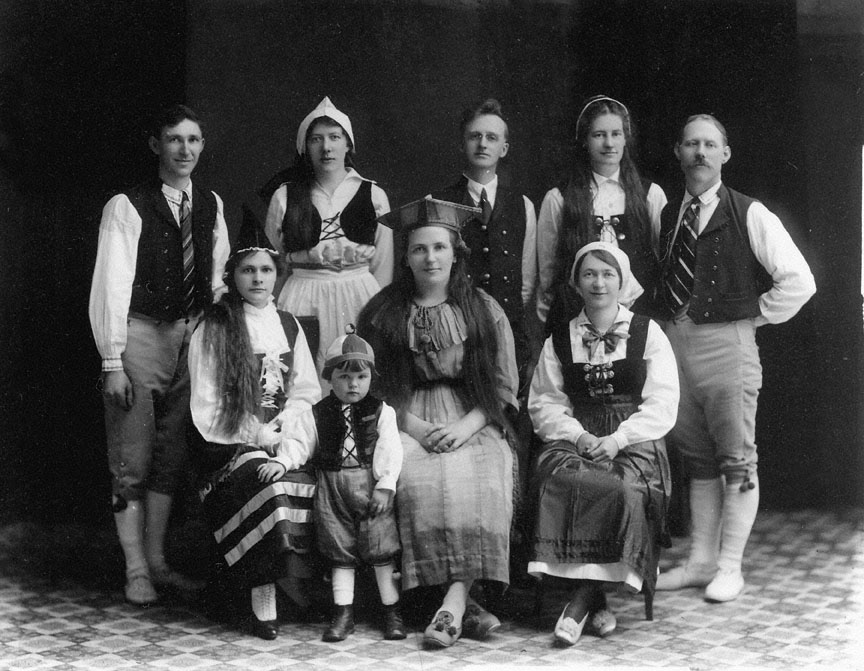Compared to the Scandinavian nation's
robust social democracy, the U.S. is a "sh*thole."
By Alex Henderson / AlterNet
 From characterizing
Mexican immigrants as rapists and drug
dealers to questioning the authenticity of President Barack
Obama’s birth
certificate to all but saluting white
nationalists in Charlottesville, Virginia, President Donald Trump has
never tried to mask his racism.
From characterizing
Mexican immigrants as rapists and drug
dealers to questioning the authenticity of President Barack
Obama’s birth
certificate to all but saluting white
nationalists in Charlottesville, Virginia, President Donald Trump has
never tried to mask his racism.
The United States’
birther-in-chief recently lived up to his reputation for bigotry when,
according to Illinois Sen. Dick Durbin (D-IL) and others, he denounced Haiti,
El Salvador and several African nations as “sh*thole
countries," wondering why the U.S. doesn't invite immigrants
from Norway instead.
Norwegians were less
than flattered; in fact, they've said "thanks but no
thanks" to the president's immigration offer.
But while his
motivations were clearly racial (Norway is one of the
whitest countries in the world), Trump has endorsed a country whose
public policies align with those of Senators Bernie Sanders (I-VT) and
Elizabeth Warren (D-MA); in short, everything the modern-day Republican Party
despises.
More remarkable still, this isn't the first time the president has praised a country with socialist leanings.
During a meeting with
Australian Prime Minister Malcolm Turnbull in May 2017, Trump praised Australia
for having “much better
health care” than the U.S., and it didn’t take long for Sanders to
point out that Australia has the type of government-operated
universal health care system Republicans bitterly oppose.
But Trump doesn’t
understand health care delivery in Australia any more than he understands why
Norway has a comparatively higher standard of living.
In her condemnation of
Trump’s “sh*thole countries” comment, Oslo-born journalist Martine Aurdal
points out that the U.S. attracted about 800,000
Norwegian immigrants in the late 19th century and early 20th
century, her great-grandfather among them. Norway's poor fled their country's
economic conditions, but times have changed.
With its robust social
safety net, Norway has emerged as one of the world’s most prosperous
countries.
Sanders has had high
praise for the economic policies of Norway and other Scandinavian nations, and
with good reason. When it comes to health care, overall working conditions,
education, life expectancy and upward mobility, Norway’s democratic socialism
puts U.S. governance to shame.
Even with the gains and
reforms of the Affordable Care Act, 28.1 million Americans lacked health
insurance in 2017 (down from 48.6 million in 2010).
Like much of the developed world, Norway enjoys universal health care; its coverage ranked third best in Europe in 2015 by the Euro Health Consumer Index and the 11th best in the world by the World Health Organization in 2000.
Like much of the developed world, Norway enjoys universal health care; its coverage ranked third best in Europe in 2015 by the Euro Health Consumer Index and the 11th best in the world by the World Health Organization in 2000.
Medical bankruptcy,
common in the U.S., is unheard of in Norway.
| Norwegian prison cell. Really. |
Norway has a recidivism rate of 20 percent against 76.6 percent in the U.S., where mass incarceration and the failed war on drugs have only encouraged the growth of prison gangs.
Republicans detest labor
unions, but in Norway, 52 percent of workers were unionized in 2016 compared to
10 percent in the U.S. That 10 percent includes government jobs; among
private-sector workers, unionization was only 6.4 percent last
year, according to the Bureau of Labor Statistics.
In Norway, a university
education is tuition-free,
assuming one has the grades to be accepted. In the U.S., students graduate from
college with crippling student loan
debt.
The reality is that for
most Norwegians, the U.S.—with its medical bankruptcies, mass incarceration,
prison-industrial complex, rampant homelessness, student debt and lower life
expectancy—represents a major step down.
Aurdal, explaining why
many Norwegians felt insulted rather than flattered by Trump’s remarks, wrote,
“Today, Norway is one of the richest countries in the world, and we will not
give up our cradle-to-grave welfare. ... Instead of trying to import our
whiteness, the U.S. president should try letting some of our ideals in.”
Wealth inequality in the
U.S. is appalling. According to a 2017 study by Pew Research that compared
wealth distribution in the U.S. to 11 countries across Western Europe,
roughly 80 percent of
the population in Norway and Denmark qualify as middle class
compared to just 59 percent in the U.S.
According to Pew, 26
percent of U.S. residents are living in poverty as opposed to 14 percent of
Norway’s population.
Writing for the Nation
in 2016, American journalist Ann Jones (who had lived in Norway) painted
a bleak picture of
life in the U.S., describing it as a country where “there are not enough
shelters for the homeless. Most people are either overworked or hurting for
jobs; the housing is overpriced, the hospitals crowded and understaffed, the
schools largely segregated and not so good.”
Drawing from her own
personal experiences in Scandinavia, Jones agreed with Sanders’ assertion that
the U.S. should “look to countries like Denmark, like Sweden and Norway, and
learn from what they have accomplished for their working people,” and that we
should strive to be a "society where all people do well, not just a
handful of billionaires.”
Norway is not a
successful country because its people are fair-skinned; Norway is successful
because, unlike the U.S., it doesn’t have an economy of the 1 percent, by the 1
percent and for the 1 percent. If President Trump and his fellow Republicans
understood that, we might not be in the dire straits we are in today.
Alex Henderson's
work has appeared in the L.A. Weekly, Billboard, Spin, Creem, the Pasadena
Weekly and many other publications. Follow him on Twitter @alexvhenderson.
